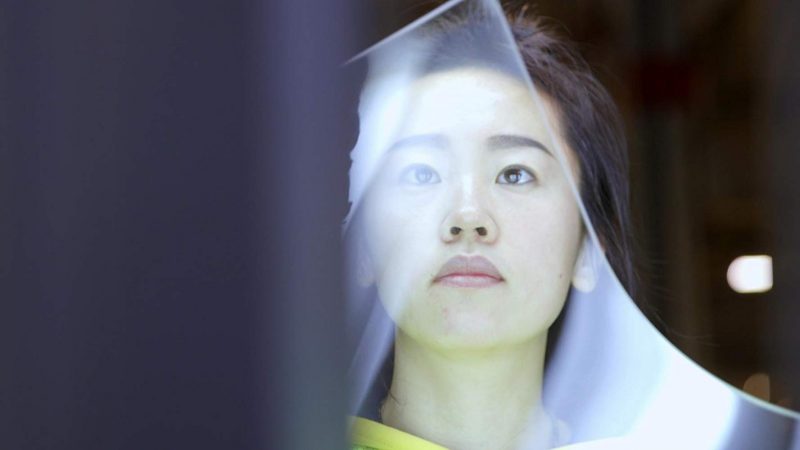The 2019 Doc Edge International Documentary Film Festival has come and gone after successful runs in Auckland and Wellington. Fortunately, your chance to see some of the featured documentaries has not yet passed! Many entries in the prestigious documentary competition made their runs through the festival circuit still searching for potential distributors. It stands to reason that some of them would find a platform in the streaming world, and so they have.
So far, three movies that featured in the 2019 Doc Edge film festival are now available to watch on Netflix. So, if you didn’t make it to Doc Edge festival, or you did catch a few films but missed most of them, check out the three documentaries below that are now available on Netflix in New Zealand.
American Factory
American Factory, directed by Steven Bognar and Julia Reichert, chronicles the fall, then rise, then bleak transformation of a manufacturing facility in Ohio in the United States, examining the future of middle-class labour as it is threatened by powerful interests and automation.
Once a prolific automotive factory for General Motors, the Morraine Assembly was shuttered in 2008, putting over 2,400 members of the United Auto Workers Union out of work. The decline in American manufacturing is well-documented, as manufacturers continue to outsource such work to countries with cheaper labour and fewer workplace protections. Many of the former Morraine workers struggled in the ensuing years, some losing their cars or homes or moving in with family.
Then, in 2015, Chinese manufacturer of automotive windshields Fuyao purchased the facility. Led by chairman Cao Dewang, harbouring dreams of a China-led revival in American manufacturing, Fuyao brought 1,000 of the Morraine Assembly’s past workers back for a second chance. The new work paid a fraction of what their old jobs with General Motors had, however, and no union existed to negotiate for better working conditions or compensation.
American Factory looks at the profound cultural differences separating American and Chinese labour, examining the significant role that labour unions have played in shaping the American workforce and comparing it to China’s ruthless efficiency. Are American workers spoilt and undisciplined, or are Chinese workers merely willing to do more for less? In a world of rapidly emerging automation, what will become of middle-class workers like those in Morraine, Ohio? The answers are elusive and troubling, but American Factory is thoughtful, engaging, and clear-eyed about the future of work.
The Edge of Democracy
Part political thriller, part coming-of-age tale, Petra Costa’s The Edge of Democracy chronicles Brazil’s journey out of the wilderness of military dictatorship, the rise of representative democracy, and its slide back toward authoritarianism.
Following years of populist upheaval in Brazil, Luiz Inácio Lula da Silva was swept into power in the nation’s first democratic elections in nearly three decades. Backed by the labour-friendly PT party, Silva became one of the most popular politicians of his generation. His apprentice and eventual successor, Dilma Rousseff was popular and respected in her own right. However, the nation’s fledgeling democracy could not withstand the forces of corruption it sought to defeat. Rousseff was impeached in 2017 and Silva imprisoned on corruption charges in 2018, paving the way for Brazil’s current authoritarian president, Jair Bolsonaro.
Costa tells the tale of Brazil’s modern political history through the lens of her own adolescence. Her parents had been political dissenters living in hiding and emerged from the shadows with the rise of Silva in 1989. She uses her growing disillusionment in the political process to lend a human touch to the formal charges and hearings that undid the potential of her country’s government.
The Edge of Democracy is, in equal turns melancholy and ominous, a tactful look at the precariousness of our most coveted institutions.
Roll Red Roll
Nancy Schwartzman’s Roll Red Roll opens with audio of teenage boys at a high school party in Steubenville, Ohio, shortly before the beginning of the 2012 football season, laughing and joking about having committed a heinous crime. Text messages appear on-screen of a confused, frightened and victimised girl as she attempts to learn what had happened to her the night before.
Roll Red Roll is a harrowing look into the culture of toxic masculinity, how early it fixes itself in the minds of boys and how deeply its roots can penetrate the fabric of a community. Steubenville, like many small towns across America (I myself hail from a town of less than 500 in Nebraska), rally around the local high school football team. With success on the field comes a level of privilege that, in the absence of strong moral leadership, can twist into a lack of accountability and corruption of decency.
As local police begin questioning parents and coaches, and area reporters begin pouring through old social media posts, the rape case that rocked Steubenville high school captured the nation’s attention and laid bare a society’s enduring ills. Who will fix the depraved culture of a group of high school boys when parents insist that rape normal for teenagers, coaches insist that punishment unnecessary, and local sports radio personalities insist the victim was asking for it? Roll Red Roll casts an unflinching eye toward one small town’s boys-will-be-boys complicity in an atmosphere of violent misogyny that runs much deeper than a single attack.
Looking for more film recommendations like this one? We’ve got you sorted! Subscribe to the Zizacious blog today for more!











